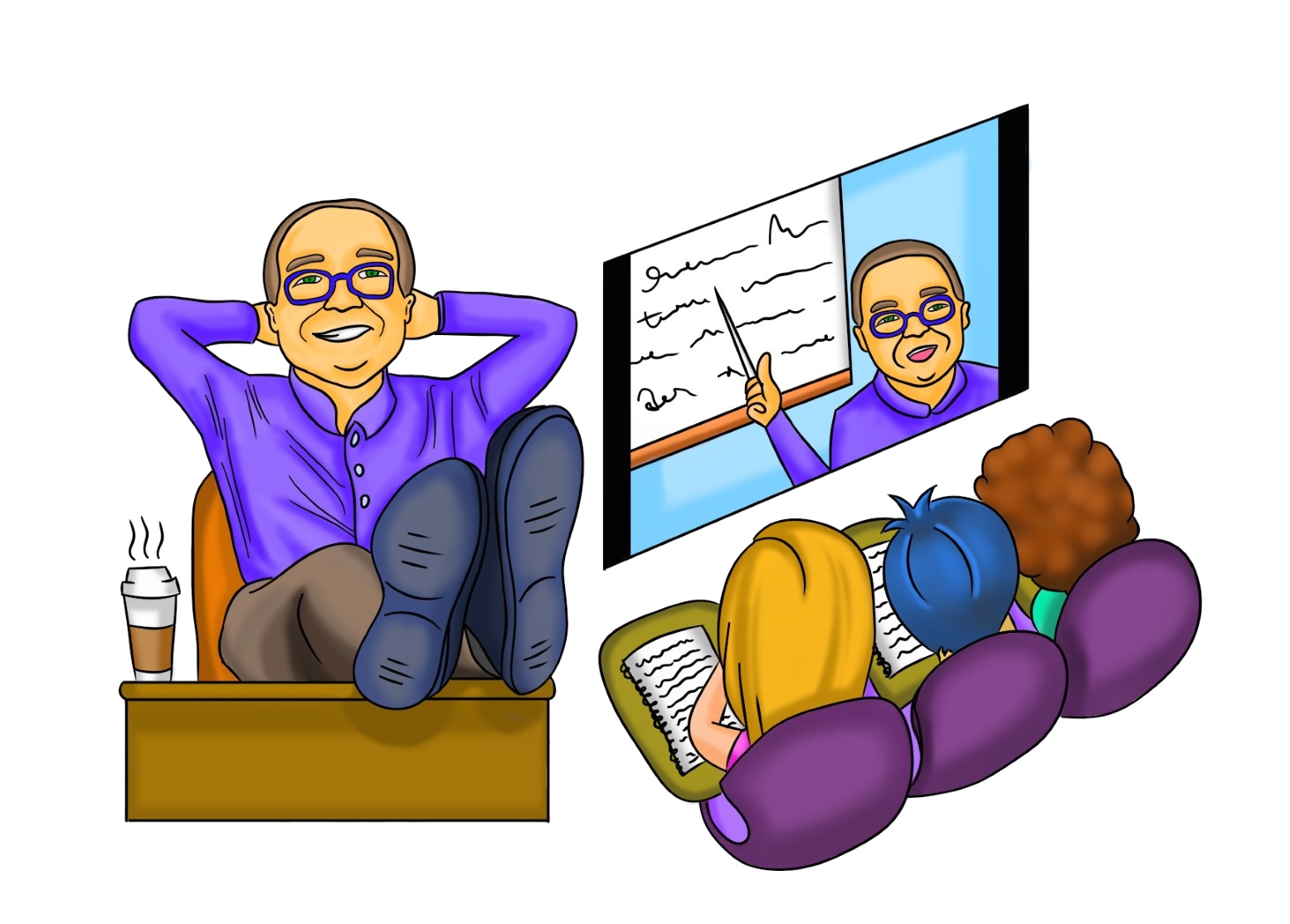Casey Kovarik: Flipped courses widen gap between students, professors

(Yanna Lee/Daily Bruin)
By Casey Kovarik
April 16, 2015 12:04 a.m.
The first day I went to my Political Science 30 class this quarter, I was surprised to find that it was the only time my professor would be lecturing to us in person.
Political Science 30 with Professor Kathleen Bawn is a flipped class. It’s one of the several flipped, or hybrid online, classes that have begun popping up at UCLA this year. The term “flipped” is used because it inverts what is usually done in and outside of class, with lectures watched on the student’s time and assignments and practice done in class.
Flipped classes give students the option to watch lectures and tutorials at their own pace – but the flexibility they offer is not always a positive thing. Flipped classes also make it impossible for professors to adjust course content as the quarter progresses, because they are using lectures taped before the quarter even starts.
Instead of expanding the use of flipped classes at UCLA, the university should implement some of the most beneficial aspects of these courses into traditional classes that do not remove any face time students have with their professors.
In flipped classes, lectures are usually taped once and used again and again for each subsequent course taught by the same professor. At a large research institution such as UCLA, there is already a risk of students being disconnected from professors who are more focused on research and have too many students to know a significant number at an individual level.
The structure of flipped classes, which reduces the amount of time students see their professors, heightens this risk. Less meeting time and potentially larger classes, unrestricted by the number of seats in a lecture hall, could lead to professors detaching themselves from teaching and therefore neglecting students.
Some aspects of flipped courses, however, do provide benefits. UCLA should consider implementing some of these beneficial elements into traditional classes.
Linguistics professor Russell Schuh, political science professor Kathleen Bawn and faculty fellow Polina Vasiliev have found students to be more prepared when they come to class in the flipped course structure because online quizzes require students to do reading or watch lectures before coming to do problems in class. This is a good part of an online class and a part that could be included in traditionally formatted classes.
Traditionally, homework is assigned after a topic is covered in class. But if students were given resources and assignments beforehand, they could come to class more prepared, and professors could have an opportunity to tailor the lesson to how the students did on the assignments.
Although there are lots of online assessments for flipped courses, usually due before coming to class because the video lectures aren’t adjustable, professors aren’t able to do anything with that information. There is no reason that online assignments and frequent assessments can’t be integrated into traditional lecture settings.
Many students and professors praise the online lectures because they can pause and rewind to rewatch. But that is not a benefit exclusive to the online classroom. Many classes at UCLA are podcasted, which essentially gives the same benefits.
Political Science 30 with Professor Bawn is taught with online lectures and a weekly in-class “workshop” in addition to in-person discussion sections once a week. Homework and lectures are posted at the beginning of the quarter for the first half of the class. This is helpful for students because they have the flexibility to get ahead or work whenever is convenient.
But it also means everyone in the class could be at a slightly difference place in the material and that the professor can’t gauge and change lecture by lecture because the content is set out so far in advance.
Professor Bawn said that this has not been a problem in Political Science 30 because she has taught it so many times that she feels she knows the pace that works best for the class.
A professor with a lot of experience teaching the same class who has tested their lectures and the pace of the material would have less problems with the flipped format than a less experienced professor. But no number of years or experience can guarantee the way students will respond each quarter or that there won’t be developments in the field on that topic.
Putting more classes online is tempting for everyone because it creates more flexibility for both students and professors. But this kind of flexibility risks widening the gap between students and their professors, and ultimately, it’s a temptation we shouldn’t give in to.


